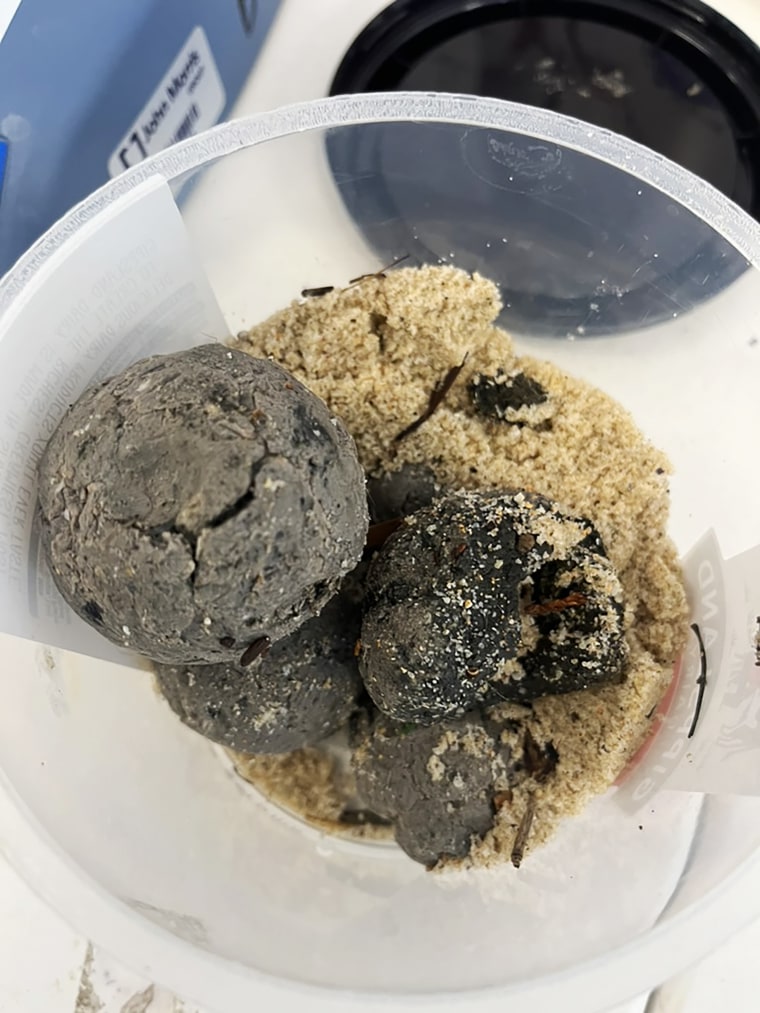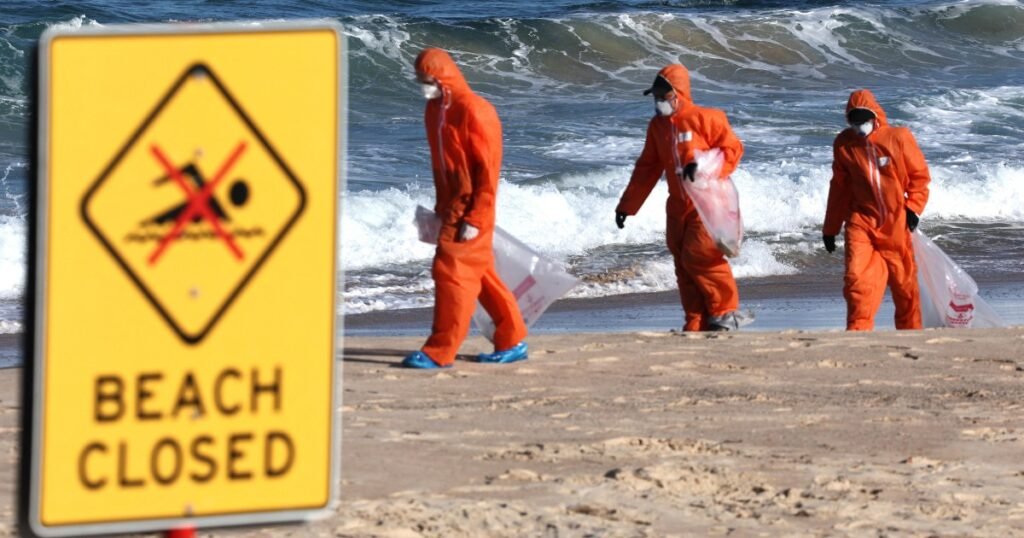Mysterious black debris in Sydney was not tar balls but ‘much more disgusting’ waste
Weeks after sticky black balls washed up on the famed beaches of Sydney, Australia, scientists say they have partly solved the mystery behind the “disgusting” blobs.
Initially thought to be tar balls, the golf-ball-size debris turned out to be something much different — a combination of decomposed cooking oils, hair and food waste, the New South Wales Environment Protection Authority (EPA) said Wednesday.
The investigation, carried out by the Australian government and scientists from the University of New South Wales, revealed that the black balls “likely originated from a source that releases mixed waste,” the EPA said in a statement.
“Authorities have considered several possible causes, such as a shipping spill or wastewater outflow,” it said.
The exact origin is yet to be confirmed due to the “complex composition of the balls and the time they have spent in the water,” the statement said. “But final results are due in the coming weeks.”
Thousands of the dark balls were discovered starting in mid-October on multiple Sydney beaches, including the famous Bondi Beach, leading to beach closures across the city’s shores.

At the time, authorities advised the public not to swim near or touch the debris. They said preliminary test results indicated that the blobs were tar balls formed when oil comes into contact with debris and water.
However, further investigation has disproven that theory.
“What we found is much more — this is not going to sound very scientific — but much more disgusting than we previously thought,” said William Alexander Donald, a chemistry professor at the University of New South Wales Sydney, who is part of the research team.
While initial testing suggested that the blobs had formed from crude oil or natural oil seeps from the ocean floor, further analysis revealed plenty of “fatty, oily, greasy” molecules typical of spent cooking oil and soap scum, as well as traces of recreational drugs and birth control medication, Donald told NBC News.
“When we’re doing the testing, these balls smell worse than anything you’ve ever — at least for me, worse than anything I’ve ever smelled before,” Donald said, with all the signs pointing toward human waste that could “clog up the sewage pipes.”
“This is a hugely complex analytical challenge where we’ve detected hundreds of different molecules and components in these blobs,” he said.
It would be interesting to follow up on how often this kind of debris occurs and whether scientists can trace it back to the exact source, Donald said, noting that his team has received a few unconfirmed reports of similar debris washing up in the past in similar areas and even in the southeastern state of Victoria.
Sydney Water confirmed there were no issues at the Bondi or Malabar water facilities, while Transport for NSW Maritime reviewed recent weather patterns but found no clear answers, according to the statement.
You may be interested

NFL doubleheader on Christmas Day sets streaming viewership records
new admin - Dec 27, 2024LeBron James is going to have to make room for the NFL.Wednesday's doubleheader on Netflix set records as the most-streamed…

Severe weather hits Texas, Pacific Northwest with flash flooding, power outages
new admin - Dec 27, 2024Severe weather hits Texas, Pacific Northwest with flash flooding, power outages - CBS News Watch CBS News Powerful thunderstorms forced…

Hair expert shares 3 hairstyles women over 40 should avoid to look younger
new admin - Dec 27, 2024Haircuts aren’t exclusive to age groups, but many women choose to sport a shorter length or simpler style beyond their…




































